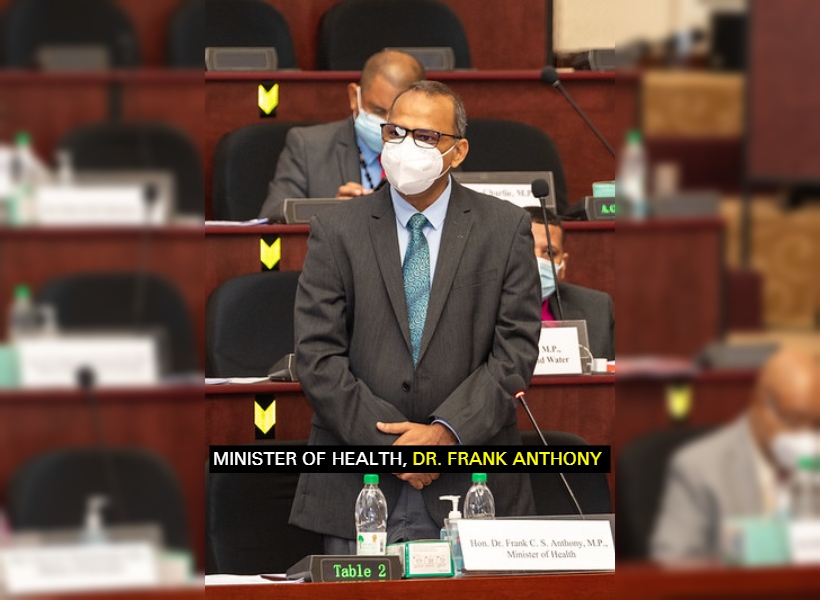A bill designed to govern organ and tissue transplant was passed in the National Assembly on Monday afternoon during the 35th Sitting of the House at the Arthur Chung Conference Centre, Liliendaal, Greater Georgetown.
Guyana has been doing kidney transplants since 2008 but without any legislation in place. Doctors over the years have mounted calls for some kind of governance mechanism to be put in place. This bill, according to the Health Minister, Dr Frank Anthony, answers that call.
“Again, we’ve done about 66 such kidney transplants in this country without any piece of legislation – no legislation in place. This government was the one who thought that it was important for us to put the safeguards in place, put the rules in place, put the law in place and to specify that if anybody breaches the laws, this would be the punishment they would get. So, we’re coming from a place where they had nothing and we’re now putting that structure in place,” Dr Anthony told the House.
The Minister noted that aside from kidney transplant, some 99 corneal transplants (keratoplasty) were done in the past without any legislation. Dr Anthony noted that Guyana is on the precipice of being recognised as a “jurisdiction that is doing proper transplant medicine” and if it wishes to have that title, then the legal and ethical framework must be established.
“All the experts – whether from Spain, US, Canada, UK, and the Caribbean – all the experts we have consulted. All of them want us to have to have strong, legal and ethical framework in place. That is what this legislation is providing for us,” he reiterated.
Minister Anthony noted that the legislation will be “colourblind”, emphasising that regardless of race, political affiliation and otherwise, persons who are in need for organ transplant would access the care they need.
The bill caters for establishment of the Human Organ and Tissue Transplant Agency as the national regulatory body for the donation and transplantation, as well as a National Donor and Transplant Registry, which will handle all matters relating to the consent.
Guyana Standard understands that the registry will be responsible for the establishment of a register of patients in need of transplants, as well as the establishment of efficient storage facilities for organs, cells and biofluids.
The bill also has mechanisms to protect against human-organ trafficking and sale/trade of human organs, tissues, cells or biofluids. According to the Attorney General and Minister of Legal Affairs, Anil Nandlall, anyone who is caught selling or trading organs, can face a five-year jail sentence as well as fine of $5M.













